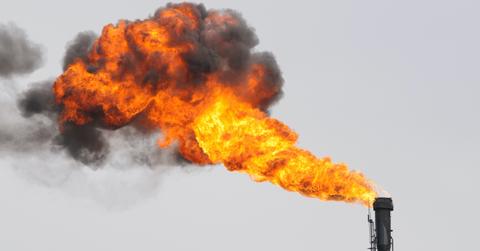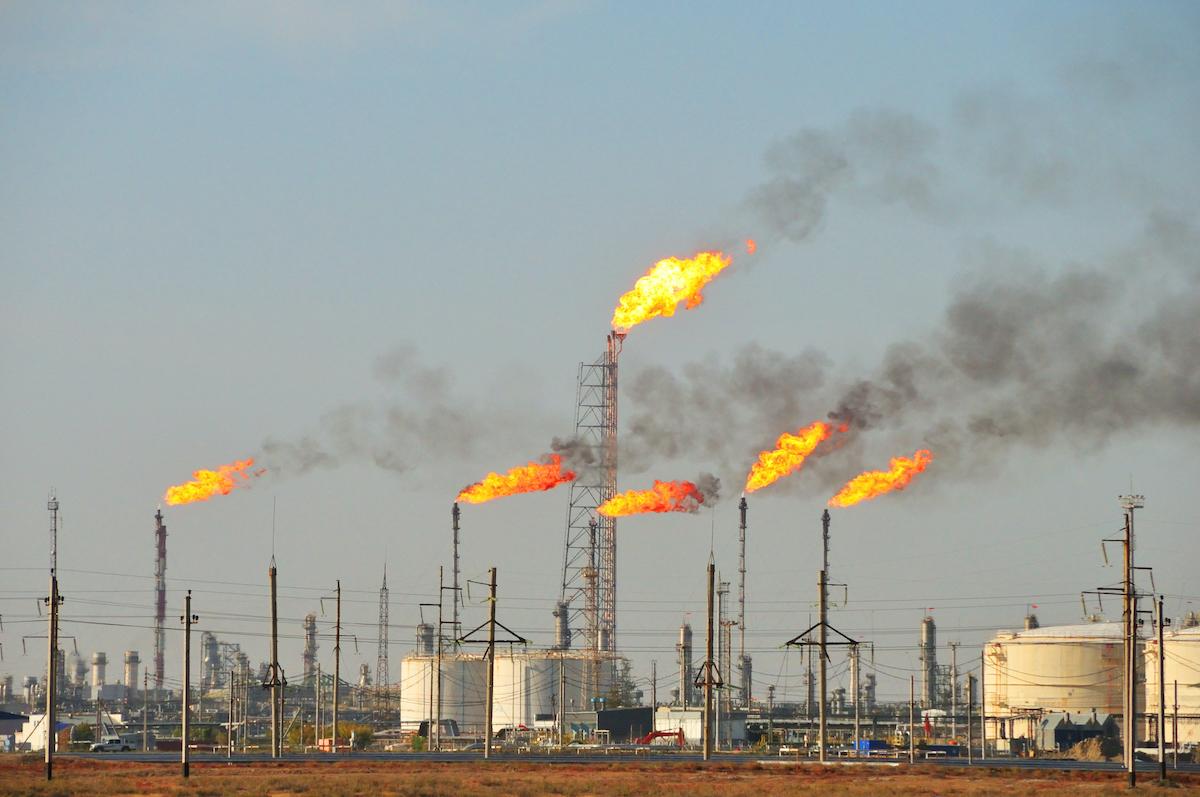How Gas Flaring Is Causing Premature Births in Latinx Women
Natural gas flaring could be causing adverse birth outcomes, such as premature births and underweight births, in Hispanic mothers in Texas.
Updated Aug. 18 2020, 2:27 p.m. ET

We may think the oil and gas industries are just fueling cars, but really, they’re fueling capitalism, discrimination, and public health issues. According to the findings of a new study, there is a strong correlation in Texas between natural gas flaring and adverse birth outcomes, such as premature births and underweight births.
The association was observed almost entirely in Hispanic women, making this injustice another example of environmental racism from the fossil fuel industry.
What is gas flaring?
As explained by the University of Calgary's Energy Education website, when oil forms, natural gas often does, too; since natural gas is denser than oil, it settles above the oil. If there is a significant amount of natural gas pockets, the miners will purposely extract and sell the gas. But in some areas (like Texas), it’s cheaper to discard the gas — so miners will typically burn off the natural gas in a process known as gas flaring, which results in vibrant orange flames, visible from miles away.
The U.S. has more flare sights than any other country on Earth, and in 2012, the U.S. burned about 6.5 billion cubic meters of natural gas.
Gas flaring is causing adverse pregnancy outcomes.

The study, published this month by the journal Environmental Health Perspectives, analyzed birth records near the Eagle Ford Shale in South Texas, a large oil drilling site. The data spanned 23,487 mothers who gave birth between 2012 and 2015, and it was compared with satellite observations of gas flares during their pregnancies, within 5 kilometers (about 3 miles) of their homes.
According to the new study, living near nightly gas flares was correlated with 50 percent higher chances of preterm birth and shorter gestation periods, as compared with mothers who were not exposed to gas flares. Additionally, mothers exposed to oil wells within 5 kilometers of their homes had higher chances of giving birth prematurely, shorter gestation, and lower average baby weight at birth as compared to mothers who did not live near wells.
Gas flaring is hurting pregnant Hispanic mothers.
In total, 10.6 percent of the 23,487 mothers studied gave birth prematurely — but what’s most troubling is that these correlations between gas flaring and adverse birth outcomes were only observed in Hispanic women, who accounted for 55 percent of the sample. Flaring did not affect birth times for non-Hispanic white mothers, who represented 37 percent of the sample.
These results have everything to do with environmental racism. Corporations tend to build polluting infrastructures (such as fossil fuel mining sites, landfills, toxic waste dumps, slaughterhouses, and factory farms) in proximity to Black and Latinx communities. These polluting sites are all known to have adverse health effects on local communities, and this study is the first one to specifically look at the effects of gas flaring on pregnant mothers.
Dr. Lara Cushing, a UCLA professor and lead author of the study, explained to The New York Times that women of color are often more vulnerable to the effects of pollution, because it’s more likely that they have been exposed to other pollutants in the past due to environmental racism.
Why does gas flaring affect pregnancies?

The researchers do not offer 100 percent certainty as to why gas flaring may negatively affect pregnancies, though it likely has to do with the various toxins emitted into the air during gas flaring — especially in cases of incomplete combustion, which emits particulate matter, volatile organic compounds, carbon monoxide, nitrogen oxides, heavy metals, and black carbon, according to the study.
And Elaine Hill, a University of Rochester Medical Center health economist who did not work on the study, told The New York Times, “It seems pretty plausible that it would have an effect on premature birth given that air pollution and preterm birth are well linked.”
The same activities that are hurting the planet are directly and disproportionately hurting communities of color — and the results of this study show how serious environmental racism is in the U.S.